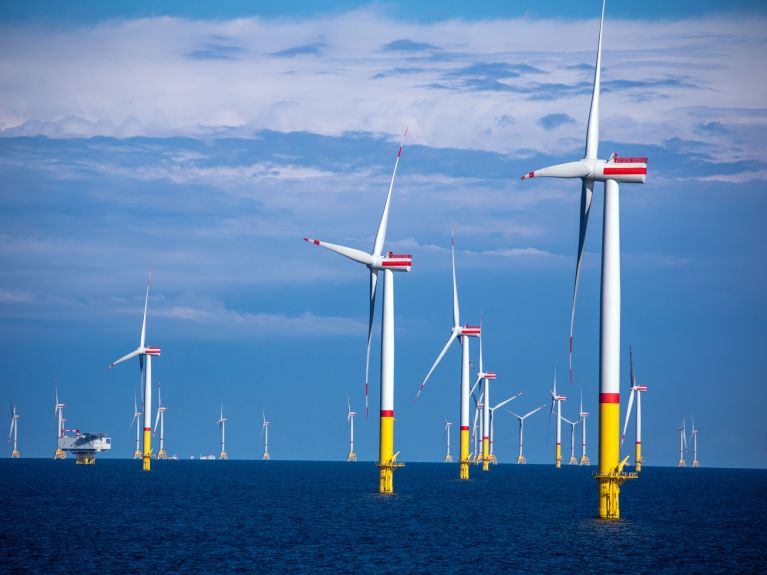A compass to make the world a better place
Germany adopted its Sustainable Development Strategy 20 years ago – though a lot has been achieved in the meantime, major challenges remain.

Many people will be familiar with the Paris Climate Agreement of the United Nations. Less well known is the 2030 Agenda that was adopted by the UN member states just a few weeks earlier, in September 2015. And yet this agreement also has enormous significance. It defines a total of 17 Sustainable Development Goals (SDGs) applicable to all people and all areas: from ending poverty and hunger to promoting health, education and social wellbeing and protecting the environment and biodiversity. Climate action is one of the goals. “Leave no one behind” is the central promise of the SDGs.
There is a long backstory to this successful achievement of international diplomacy: back in the year 1992, the UN Conference on Environment and Development in Rio de Janeiro defined sustainability as an overriding political objective and called in the Agenda 21 for sustainability plans.
“Perspectives for Germany”, the strategy of the German government
It took a while to implement this, however, including in Germany. The German government established the Council for Sustainable Development in 2001, and in 2002 presented its National Sustainable Development Strategy, entitled: “Perspectives for Germany”. This set out goals in the areas of ecology, social affairs and business and is being updated all the time. New goals are also being added, such as alignment with the UN targets defined in the 2030 Agenda, which form the guiding basis for German policy. The realisation – gained during the coronavirus pandemic – that societies need to be resilient was also included.
Progress is regularly reviewed, most recently in spring 2021. The picture this revealed was a mixed one: while the targets for expanding green electricity have been exceeded, energy-saving measures are lagging behind. The number of people with academic qualifications has risen noticeably, but so too has the number of people who leave school with no qualifications. Though the reduction of greenhouse gas emissions needs to be stepped up, Germany is one of the biggest providers of climate funding for poorer countries.
Studies show that Germany scores well on sustainability by international standards. The coronavirus pandemic in particular set many countries back in key areas such as poverty, hunger and jobs. “We find ourselves at a critical point in human history”, warns the UN. There is also some positive news, however: more and more countries are recognising the need to do more to meet the Sustainable Development Goals.
You would like to receive regular information about Germany? Subscribe here:


